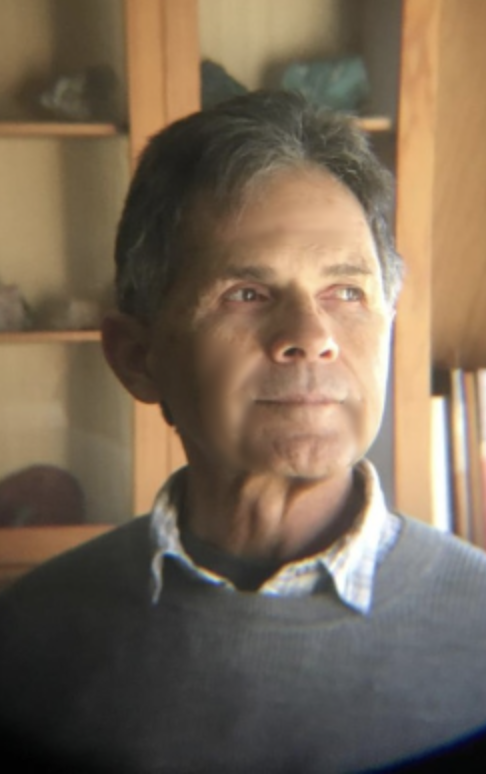Editor’s note: Amigos805 welcomes local guest columns, letters to the editor and other submissions from our readers. All opinions expressed in submitted material are those of the author and do not necessarily represent the viewpoint of Amigos805.
 By David Magallanes • Guest contributor
By David Magallanes • Guest contributor
The past few weeks have alarmed many of us who contemplate the future of our country. Yes, we’ve always had disagreements among ourselves. We’ve discussed issues and argued with each other. But over the past few years, our discord has devolved into a mean-spirited battle between liberals and conservatives, governments and disadvantaged groups, globalists and nationalists, the religious and the secularists, oligarchs and common citizens.
Disagreement, discussion, and resolution is the bedrock of our democracy, but the recent fracturing of our society threatens the very foundations of America.
We are not standing united. Quite the contrary, we appear to be hopelessly divided most of the time. A casual look at Twitter feeds (I still call them that) glaringly exposes a disturbing level of bitterness as we hurl insults and offensively abusive aspersions at one another with cruel abandon.
We would benefit enormously if we were to look to history and even nature for some semblance of peace among ourselves even as we seek peace with the rest of the world around us. We would be wise to seek the deceleration and eventual halt of this race toward the deconstruction of American values, which used to be the “shining city on a hill” that the world admired.
An example of looking to nature for lessons on societal survival can be found in the exotic, invasive red fire ants. They are native to South America but have spread throughout the world, including the southern United States (that includes California).
These fire ants are venomous and aggressive. I am not suggesting that we emulate those aspects of their characteristics (God knows we have enough venom and aggression in our interactions as it is). However, they do possess an interesting behavior that could inspire our “better angels.”
One of the reasons for their vexing perseverance is their ability to collaborate with each other when they are endangered by flooding in their ground tunnels. They literally knit their bodies together and form a living raft, which allows them to float en masse on the surface of the water. This insures their survival in “difficult times.”
What if these ants were to start bickering and fighting with each other instead of cooperating and saving the colony?
There is a potent lesson for us in that question. There are enough threats to the U.S. from the outside without the scourge of lies, vitriol, hate, and violence within our own borders. We can “save our colony” by knitting our spirits together and ascending above the rising tide of threats to our cherished principles and way of life.
— David Magallanes is a retired professor of mathematics.
***
Hormigas Cooperadoras: Lecciones Para la Supervivencia
Por David Magallanes • Columnista invitado”
Las últimas semanas han alarmado a muchos de quienes contemplamos el futuro de nuestro país. Sí, siempre hemos tenido desacuerdos entre nosotros. Hemos discutido y debatido. Pero en los últimos años, nuestra discordia se ha convertido en una batalla encarnizada entre liberales y conservadores, gobiernos y grupos desfavorecidos, globalistas y nacionalistas, religiosos y laicos, oligarcas y ciudadanos comunes.
El desacuerdo, el debate y la resolución son la base de nuestra democracia, pero la reciente fractura de nuestra sociedad amenaza los cimientos mismos de Estados Unidos.
No estamos nada unidos. Al contrario, parecemos estar irremediablemente divididos la mayor parte del tiempo. Una ojeada rápida a las publicaciones de Twitter (así las sigo llamando) revela claramente un nivel inquietante de amargura mientras nos lanzamos insultos y calumnias ofensivas con cruel desenfreno.
Nos beneficiaríamos enormemente si buscáramos en la historia e incluso en la naturaleza algún atisbo de paz entre nosotros, incluso mientras buscamos la paz con el resto del mundo. Sería prudente buscar la desaceleración y, finalmente, el cese de esta carrera hacia la deconstrucción de los valores estadounidenses, que solían ser la “ciudad brillante en la colina” que el mundo admiraba.
Un ejemplo de cómo buscar en la naturaleza lecciones de supervivencia social se puede encontrar en las exóticas e invasoras hormigas rojas de fuego. Son nativas de Sudamérica, pero se han extendido por todo el mundo, incluyendo el sur de Estados Unidos (incluyendo California).
Estas hormigas rojas son venenosas y agresivas. No sugiero que emulemos esos aspectos de sus características (sabe Dios que ya tenemos suficiente veneno y agresividad en nuestras interacciones). Sin embargo, poseen un comportamiento interesante que podría inspirar a nuestros mejores amigos.
Una de las razones de su desconcertante perseverancia es su capacidad de colaborar entre sí cuando se ven amenazadas por las inundaciones en sus túneles subterráneos. Literalmente, unen sus cuerpos y forman una “balsa viviente”, lo que les permite flotar en masa sobre la superficie del agua. Esto asegura su supervivencia en tiempos difíciles.
¿Qué pasaría si estas hormigas comenzaran a discutir y pelear entre sí en lugar de cooperar y salvar la colonia?
Hay una poderosa lección para nosotros en esa pregunta. Ya hay suficientes amenazas externas para Estados Unidos sin el azote de las mentiras, el vitriolo, el odio y la violencia dentro de nuestras propias fronteras. Podemos salvar nuestra colonia uniendo nuestros espíritus y superando la creciente ola de amenazas a nuestros preciados principios y estilo de vida.
– – David Magallanes es un profesor jubilado de matemáticas.
Editor’s note: Amigos805 welcomes comments on stories appearing in Amigos805 and on issues impacting the community. Comments must relate directly to stories published in Amigos805, no spam please. We reserve the right to remove or edit comments. Full name, city required. Contact information (telephone, email) will not be published. Please send your comments directly to frank@amigos805.com
